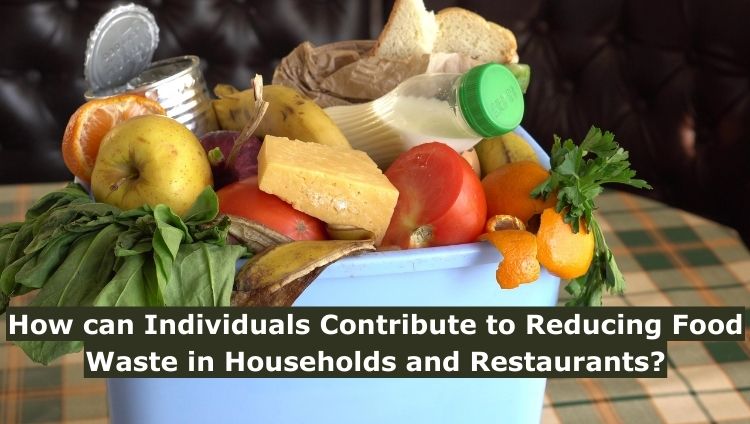Reducing Food Waste in Households and Restaurants is important because it adds to greenhouse gas emissions and squanders the water and resources used in food production.
While individual consumers may not be major environmental culprits compared to large corporations, there are practical steps they can take throughout the day to lessen their contribution to this problem.
This article will guide you on How can individuals contribute to reducing food waste in households and restaurants?
Avoid Over-Purchasing
Avoiding the buildup of surplus food helps prevent the frustration of watching unused items go to waste in your kitchen. Throwing away unnecessary food worsens the global food waste problem and strains the planet’s limited resources. Beyond its environmental consequences, food waste also takes a toll on your finances.
A practical solution is to shop more frequently but in smaller quantities. This approach allows you to better gauge your actual needs, reducing the chance of buying more food than you can use.
By adopting this simple shopping habit, you not only save money but also contribute to a healthier, more sustainable planet. It’s a responsible way to support environmental conservation.
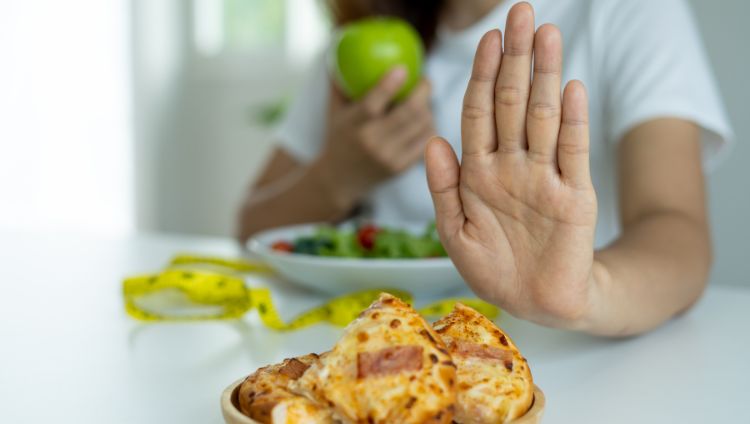
Be Mindful Before Throwing Food Away
Food doesn’t always need to be thrown away just because it’s past the “best-before” date or seems a bit less fresh. With a bit of creativity and the use of your senses, you can salvage many items that might otherwise be wasted.
For example, slightly wilted vegetables can still be great in soups and stir-fries. By reconsidering before discarding food, you not only save money but also help reduce the environmental impact of food waste.
If you’re interested in more sustainable practices, check out our article on how to achieve zero waste management.
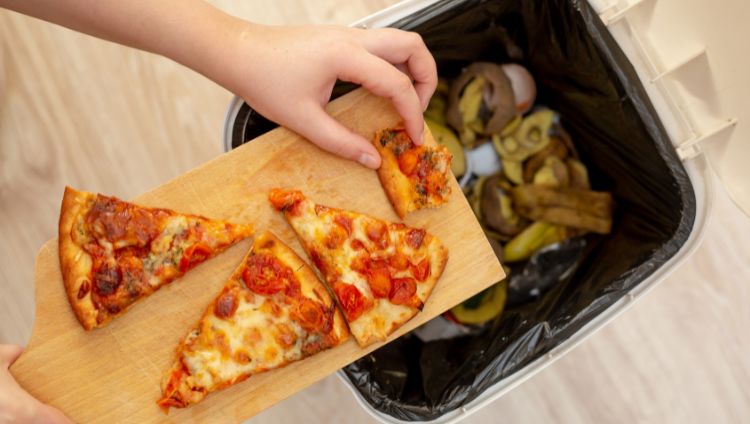
Always Create a Shopping List
Creating a shopping list before heading to the store can significantly reduce food waste. It acts as a reliable guide, preventing you from purchasing items you already have at home.
By outlining what you need, you make your shopping more efficient, avoid unnecessary purchases, and contribute to environmental conservation.
Additionally, this practice supports a cleaner kitchen and improved meal planning. Embracing this simple habit can boost your financial savings and benefit the planet.
Efficiently Organize Your Kitchen with FIFO
The FIFO method isn’t merely an organizational tactic; it’s an effective strategy for minimizing food waste.
By adhering to the “first in, first out” principle in your kitchen, you ensure that older items are used before newer ones.
This approach not only helps prevent spoilage but also saves money by utilizing existing food. Its widespread use in households, restaurants, and grocery stores highlights its effectiveness in reducing food waste.
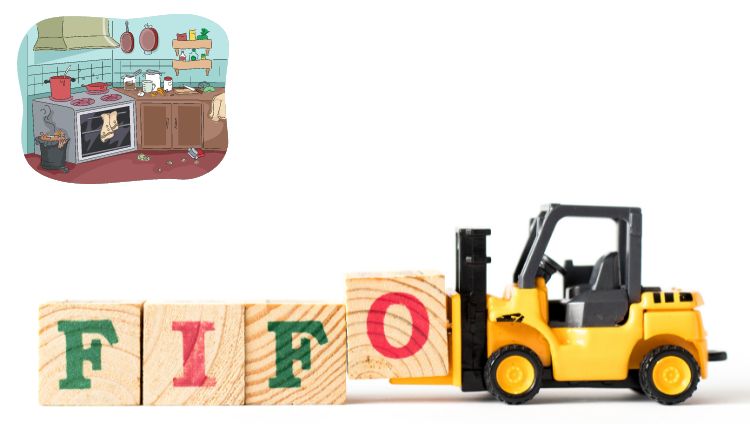
Proper Food Storage Matters
Knowing how to store food properly is important to stop it from going bad. Keeping your fridge at the right temperature, which is 41°F (5°C), helps to keep things like meat and dairy fresh for longer.
Putting food away correctly and keeping cooked food separate from raw food helps stop germs spreading. This means your food stays good to eat for longer. Using containers that seal shut not only keeps your food tasting good but also stops it from going bad too quickly.
Composting
Composting serves as an incredible opportunity to contribute positively to the environment while nurturing your garden. By composting food scraps and other biodegradable materials, you actively prevent the release of harmful methane gas into the atmosphere, as these materials would otherwise end up in landfills.
Instead, you are actively generating a nourishing compost that can significantly boost the vitality and fertility of your garden, enabling your plants to thrive with natural goodness.
Engaging in composting not only aligns with environmentally conscious practices but also infuses a renewed purpose into the disposal of waste, empowering your home gardening ventures with a sustainable and enriching touch.
For more information on the benefits of composting, visit our article on how to implement composting at home.
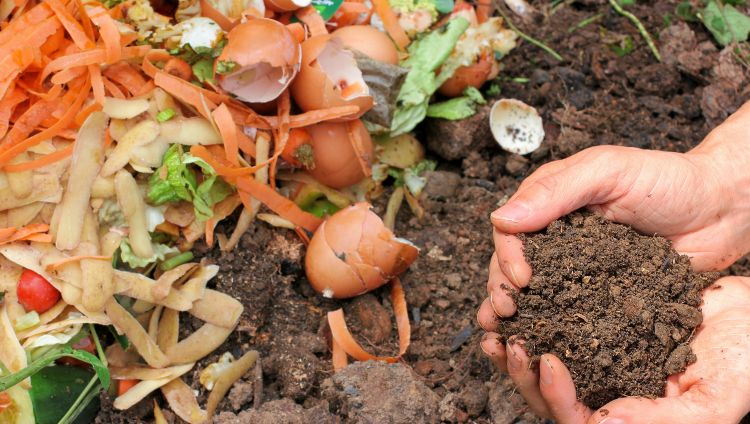
Using Leftovers Creatively
Creativity in the kitchen is not only about whipping up delicious meals but also about reducing waste. Instead of discarding food that may not be at its freshest, you can transform it into new and exciting dishes.
Vegetable scraps can become a flavorful soup stock, while soft fruits can enhance your morning oatmeal. Stale bread can be reborn as croutons or incorporated into hearty dishes like an egg strata.
The possibilities are vast, and by thinking outside the box, you can not only save money but also make the most of your food and minimize waste.
Incorporating these practices into your daily life may seem like small steps, but collectively, they can significantly reduce food waste.
By being more mindful of your food choices and adopting sustainable practices, you not only benefit yourself but also contribute to a healthier, more sustainable planet. Remember, every bit counts in the effort to reduce food waste and its associated environmental impacts.
Explore how to reduce plastic waste alongside food waste in our article on effective strategies for reducing plastic waste.
Frequently Asked Questions
Why is reducing food waste important?
Reducing food waste is essential because it conserves resources, saves money, and minimizes the environmental impact associated with food production and disposal. It also helps address issues like hunger and food insecurity.
How can I reduce food waste in my household?
You can reduce food waste at home by planning meals, using leftovers creatively, practicing FIFO (first in, first out) food storage, and composting food scraps. These actions help minimize waste and make the most of the food you purchase.
What can restaurants do to reduce food waste?
Restaurants can reduce food waste by accurately portioning meals, implementing menu engineering to use ingredients efficiently, and donating surplus food to local charities. Proper training for staff on food handling and waste reduction is also crucial.
How can I get started with composting in my home?
Starting composting at home is relatively simple. You can use a dedicated bin or a compost pile in your backyard.
Compostable materials include food scraps, yard waste, and non-recyclable paper. Just ensure a proper balance of greens (kitchen scraps) and browns (yard waste) for successful composting.
What are the economic benefits of reducing food waste in restaurants?
Reducing food waste in restaurants can lead to significant cost savings. By more accurately portioning meals, using ingredients efficiently, and minimizing spoilage, restaurants can increase their profitability and decrease expenses related to food disposal.
Conclusion
Minimizing food waste is a collective responsibility shared by both individuals and businesses. At the household level, it starts with careful planning, efficient storage practices, and innovative use of ingredients.
Composting is another effective method for reducing waste while enhancing soil quality. Restaurants can implement strategies such as portion control, menu adjustments, and donating surplus food to charitable organizations.
Every small effort makes a big difference. By cutting down on food waste, we conserve resources, save money, and reduce the environmental impact of our eating habits.
This is a win-win for both people and the planet. Let’s take proactive steps to adjust our daily routines and encourage others to do the same. Together, we can build a more sustainable and less wasteful future.


